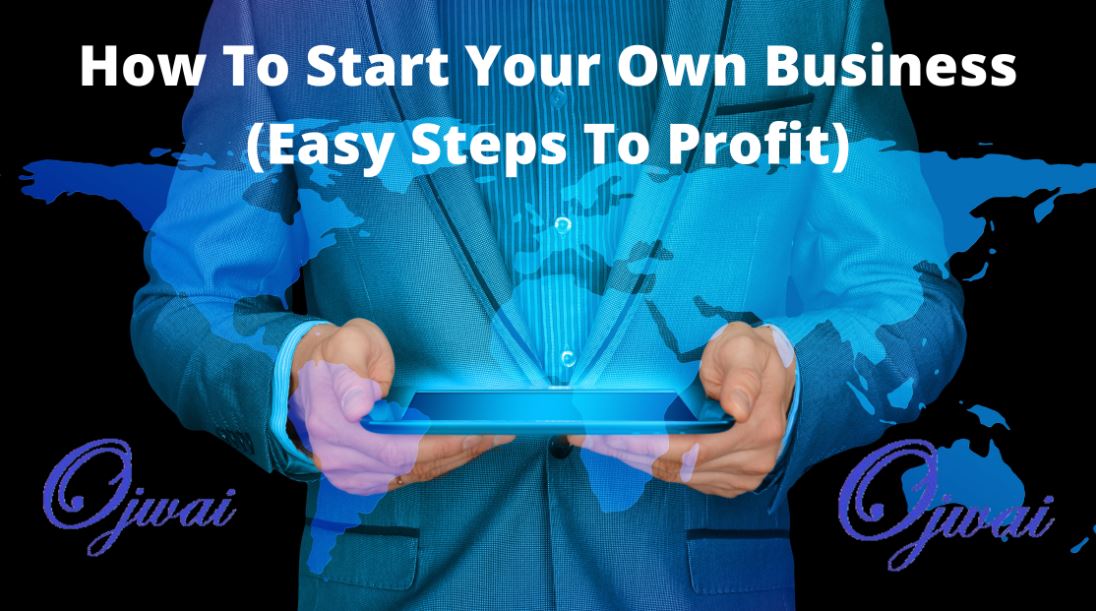Are you looking for the easy ways on how to start a business from home with no money in 2022? You’ll learn today how to start your own business online from home. If you want to become a successful business owner then this page is for you. You’ll see more unique ideas for business to start today.
Always ask yourself what are the steps to be followed to start your own business.
The basic concept in the business is there are many variables from business type to business model and physical location.
However, there are few things for every business that needs to follow. We have given some common steps you need to take when you start your own business.
You will get complete information that how to start your own business from home with no money.
Keep in mind that, every business has its unique structure, so you need to refine this list as you go.
You’ll wonder to know that there are over 28 million small businesses in the United States of America. Just imagine how many businesses there are in the world.
When you think of starting a new business, you need to include your unique business idea.
Starting your own business is one the most valuable and great ways to take control of your daily life.
Today, we’ll show exactly how to start our own business in a few steps.
You can start your own business on the side like part time job if you have a full time job.
Don’t think that starting a business is hard. You do not need a private or public company or more employees.
Just must need the right system to start your own business effectively.
Ensure that you follow all necessary procedures and steps when you start your own business.
How to Start a Business from Home in India With No Money in 2022?
Stand on You
Always be yourself, I could understand there could be lots of reasons for you to start a business or even start a blog.
There may be a chance that you may be dissatisfied with your current Job or circumstances.
First, you admit and believe in yourself that you are the only person who can solve this problem.
First Find the Right Business for You
Open your eyes and look at the business world and correlate and compare your knowledge with them.
Analysis and list out your interest which you are willing to start. Relates with all factors such as your age, knowledge, experience, personality, Social relations and so on.
Once you have decided the right business then mix with it.
Business Plan
Planning is the key for a successful business. Planned business always helps to get confidence, clarity in the business and good focus on development.
Questions to Ask Yourself
- How to Start Your Own Business
- What is my business?
- Which Business is Right for You to Start ?
- What will I serve to my clients?
- What are my action plans, objectives, strategies and goals?
Know Your Business before Investing
Always analyze before you spend money, first, find out will people buy your product or services?
Don’t force the customer to buy your product, Optimize the size of your target-able market, who will be your customers?
I have provided a few tips which I learned from my experience, you are always welcome to feed your inputs here.
11 Steps to Learn How To Start Your Own Business
Here are the important steps which are required to start your own business successfully.
1. Do Your Research – Personal Evaluation
You might have already decided a business idea. This is the best time to take this idea into action with real life.
You need to prepare like a validation process before going to take action.
You must ask a few questions when you start your business.
What are the reasons to start your new business? Is it for money, need, flexibility and freedom, or to solve an issue or any other reason?
- What are your sound skills?
- What industries do you have strong knowledge in?
- Do you want to offer a product or service?
- Who are your customers?
- Does any company (companies) offer same service / product?
- What is the scale of your competition?
- How does your new business fit into the market?
- Is your business will be part time jobs or full time?
- What is your investment if it is needed?
Your answers for all these questions will help you to focus on your new business effectively.
You should not skip any of these questions. These are the important factors you need to have before starting your own business.
Passion alone is not only enough in order to start a successful business.
2. Make a Plan – How To Start Your Own Business
Whatever may be your future business, but you must have a plan in order to take your business idea a reality.
A perfect business plan is like a blueprint that will help your business from the starting point through establishment and growth as well.
All new businesses must have a plan.
All different types of businesses have different types of plans.
Also if you have an idea to get financial support from a financial institution or investor then a traditional business plan is a must one.
Bank and investors will validate your idea before offering your financial support.
If your business does not anticipate looking for financial support then a single page business plan is more than enough.
This simple business plan will give you more clarity about your business and its goals.
Also you may create a working business plan initially and improve and change it later based on your business requirements.
Some business plans are constant and will not require any changes or updates.
3. Finance Plan
If you’re going to start a small business then it does not require a lot of money.
Although, it involves some initial amount or investment and you need to manage ongoing expenses until you see a profit in your business.
Create a spreadsheet and write about the estimates and startup-costs for your business.
Your business spreadsheet must have all details like,
- Permits & Licenses
- Equipment
- Legal Fees
- Insurance
- Market Research
- Trade-marketing
- Opening Events
- Inventory
- Utilities Marketing
- Advertising Expenses
- Production,
- Travel Expenses
- Employee Salaries
- Your Salary
- Rent
All these should be added in the initial investment spreadsheet.
4. Analyze Your Industry
If you know more about your industry then you will have more protections and advantages.
You need to evaluate your idea once you’ve decided your business.
Know more about who will buy your product or service and who are your competitors.
This is the stage, where you need to calculate how much money you would need to start your business.
Read and research more about your industry through Google search, discuss with the people who already running this business, checking with the relevant news sites, your industry magazines.
If possible, you may attend a few classes where you can earn more about your business.
5. Choose Your Business Structure
What is your structure? Is it a sole proprietorship or a partnership business?
Or is your business a limited company (LLC) or is it a Corporation?
The business entity will impact many factors like your liability, business name and how you file your taxes and so on.
You may select a start-up structure. Later on , you reevaluate and change your business structure as it grows and need of change.
Few businesses may need to get validated the right structure by the attorney or CPA.
6. Select and Register Your Business Name
Business is the key and plays the major role in all businesses.
You must check if it’s trademarked or being used by someone else. So you can go for registration.
As a sole proprietor, you must register your business name with the state or country.
Nowadays, all businesses rely on the internet, so you may start a blog to expand your business globally.
You may check here your favorite domain name.
Also Read: How to Earn Money from Blog
7. Get License and Permits for your Own Business
Although we are doing our business online or offline, paperwork is an unavoidable process when you start a new business.
Based on your business location, situation, type of your business you’re starting, you need to apply for a business license and permit also.
During the business start-up process, you need to research and find out which licenses and permits apply to your small business.
8. Accounting System
If the system is good then your small business will run effectively. Yes, choosing the appropriate accounting system is the key for any business.
Accounting system is most important when you start your own business.
Accounts system will help you by creating and managing your business budget, conducting business, tax related rates and prices.
If you have accounting knowledge then you may set up your accounting yourself or you may hire an accountant.
People, who have decided to do the accounting by themselves, may go for accounting software.
9.Choose Your Business Location
Selecting your business location is one of the important factors to operate your new business successfully.
Your new starting business may be home based business, shared space or private office.
Ensure that your business or office location will suit your business type.
10. Form Your Team – How To Start Your Own Business
This is the best time to build your team ready if you’re going employee hiring.
Take more time to study about the positions you are going to recruit.
If you do not need employees in office or physically then you may look for Virtual assistants or remote employees for your business.
11. How To Start Your Own Business – Promote Your Business
Now you’re all set with your business. What else now? Your business is not up and running, this is the time to promote your business.
Attracting clients and customers to take your business to the next level is very important.
There are many marketing strategies there to promote your business effectively.
Keep in your mind that success won’t happen overnight. But your dedication and patience will take your business to the top level.
Conclusion
I hope you might have learned how to start your own business online with these wonderful steps and instructions.


